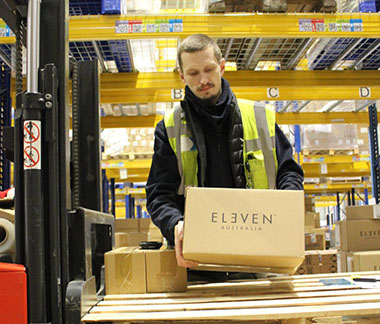Article from the Journal du Poids Lourd : CNG AND BIONGV CONTINUE TO GROW
28/02/2023, Florent Le Marquis
The share of vehicles, especially heavy vehicles, running on CNG continues to increase in France. BioNGV is developing all the more rapidly, even if the stakeholders expect better support.
CNG continues to grow. At the end of December 2022, more than 33,000 vehicles were running on CNG or BioNGV in France. This is 30% more than the previous year, according to figures from the AFGNV (French Association for Natural Gas for Vehicles) presented on 9 February 2023. “For several years, the sector has been on the move," says Jean-Baptiste Furia, vice-president of the AFGNV. “When we counted 103 public refuelling points in 2018, we counted 305 in December 2022, with a forecast of 360 in 2023. And that's without counting the private stations, of which there are about 350."
BioNGV is gaining momentum
This is a strong advantage of CNG: a refuelling network that is already well supplied, compared to electric vehicles in particular. This is one of the reasons why CNG appeals to the heavy vehicles. While some 12,500 passenger cars run on this energy in France, there are more than 9,000 heavy goods vehicles (+45% in one year), 7,400 buses and coaches (+158% for coaches) and 2,500 refuse collection vehicles. "Heavy vehicles are the best vector for decarbonising road transport,” according to Clément Chandon, product manager, homologation & regulations at Iveco. “90% of road transport can be carried out with CNG, because the technology is proven, particularly in terms of autonomy."
The AFGNV is placing even more emphasis on BioNGV, the "100% renewable version of CNG" through the use of biomethane. Its share had doubled by 2022, reaching 25% of the volumes of fuel gas sold. "When analysing the entire life cycle, the CO2 emissions of a heavy goods vehicle running on BioNGV are more than four times lower than those of CNG, and more than twice as low as those of electric vehicles," explains Frédéric Martin, deputy director general of GRDF. The Association expects CNG to gradually disappear in favour of BioNGV: the objective is 50% by 2025, and 100% by 2033 for the latter.
"The advantages of BioNGV for a transport operator are the CO2 footprint, autonomy, attractiveness for drivers and the large refuelling network", summarises Vincent Lesage, CEO of mobility at Transports Breger.
Eight BIOGNV refuelling stations for the post office
Among the players in the transport world who have seriously considered BioNGV, La Poste has set itself the goal of zero net emissions by 2040. “Our roadmap is demanding, but we are moving forward at top speed," says Christophe Baboin, Managing Director of Viaposte Transport Management. “We have chosen the energy mix, favouring BioNGV over the long term, because the energy and the equipment are available."
The group argues that electric vehicles cannot decarbonise long-distance fleets quickly, that hydrogen has not yet been deployed and that biofuel is only a transitional solution. La Poste has announced the launch of eight BioNGV refuelling stations near its major industrial platforms by 2024-2025. "Without BioNGV in the energy mix, there will be no massive decarbonisation of heavy transport in France," says Christophe Baboin, who nevertheless points out a limit to this energy: price stability. "In these difficult times, the cost of BioNGV has at times been multiplied by ten, while it has at worst doubled for diesel. We will have to stabilise these solutions," he hopes.
More sustained support
Vincent Lesage confirms this limit: "In 2022, if we average out the standard differences between diesel and BioNGV, the latter cost us 33% more in 2022. So we need motivation! We have to do everything we can to secure ourselves."
Support should not stop there, according to Jean-Baptiste Furia, who listed other priorities for 2030: "Immediate compensation of the price of BioNGV at the pump in the event of inflation; subsidies for the purchase of a heavy vehicle running on BioNGV/GNV; recognition of BioNGV as an alternative fuel in European regulations.”








